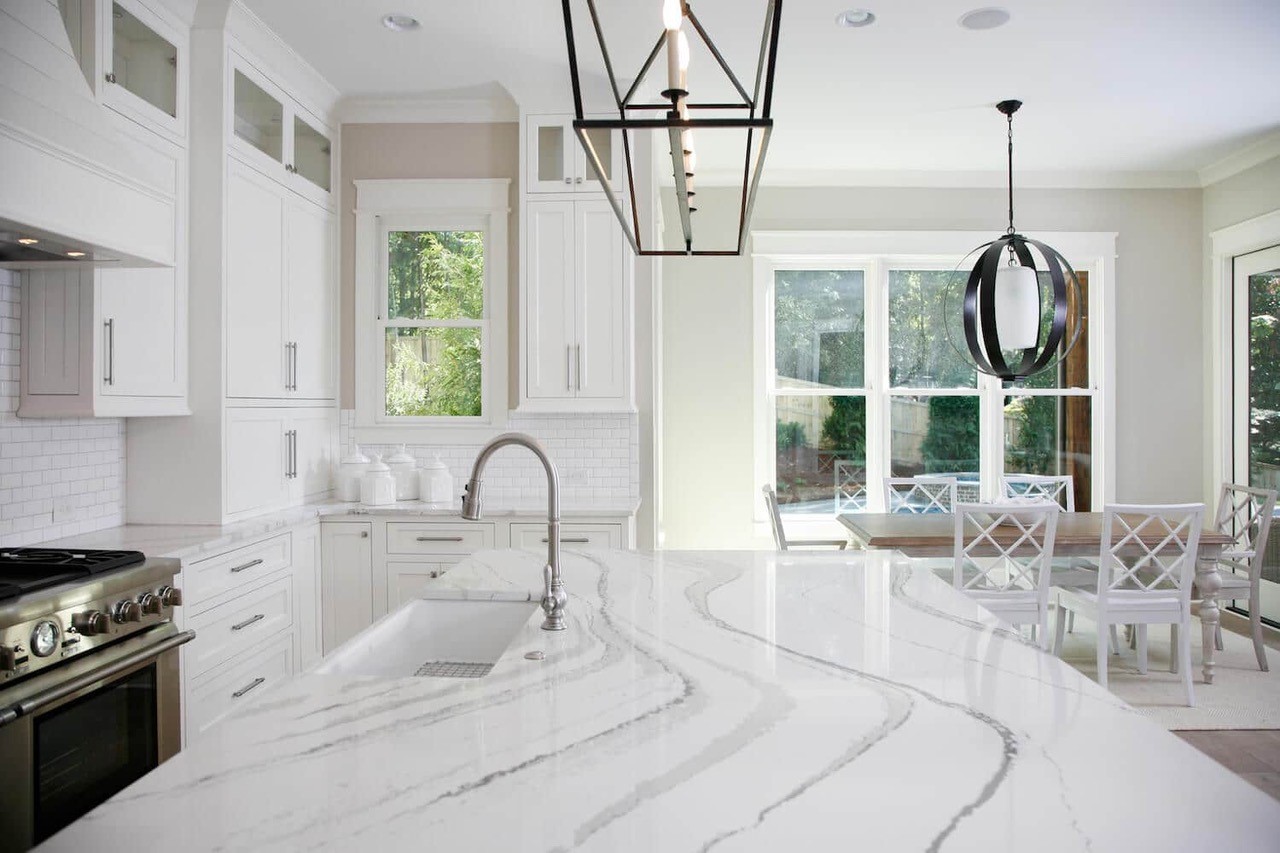
Whether you are renovating, building, or just wanting to try something new, we have all the information you’ll need to pick the best countertops for your home. The most popular choices for countertops are granite, quartz, butcher block, marble, and laminate. There are more uncommon options including solid surface, concrete, ceramic tile, soapstone, and more! When deciding on a color and design for your countertops, remember to match them to the wall color, floors, furniture, and hardware.
Granite
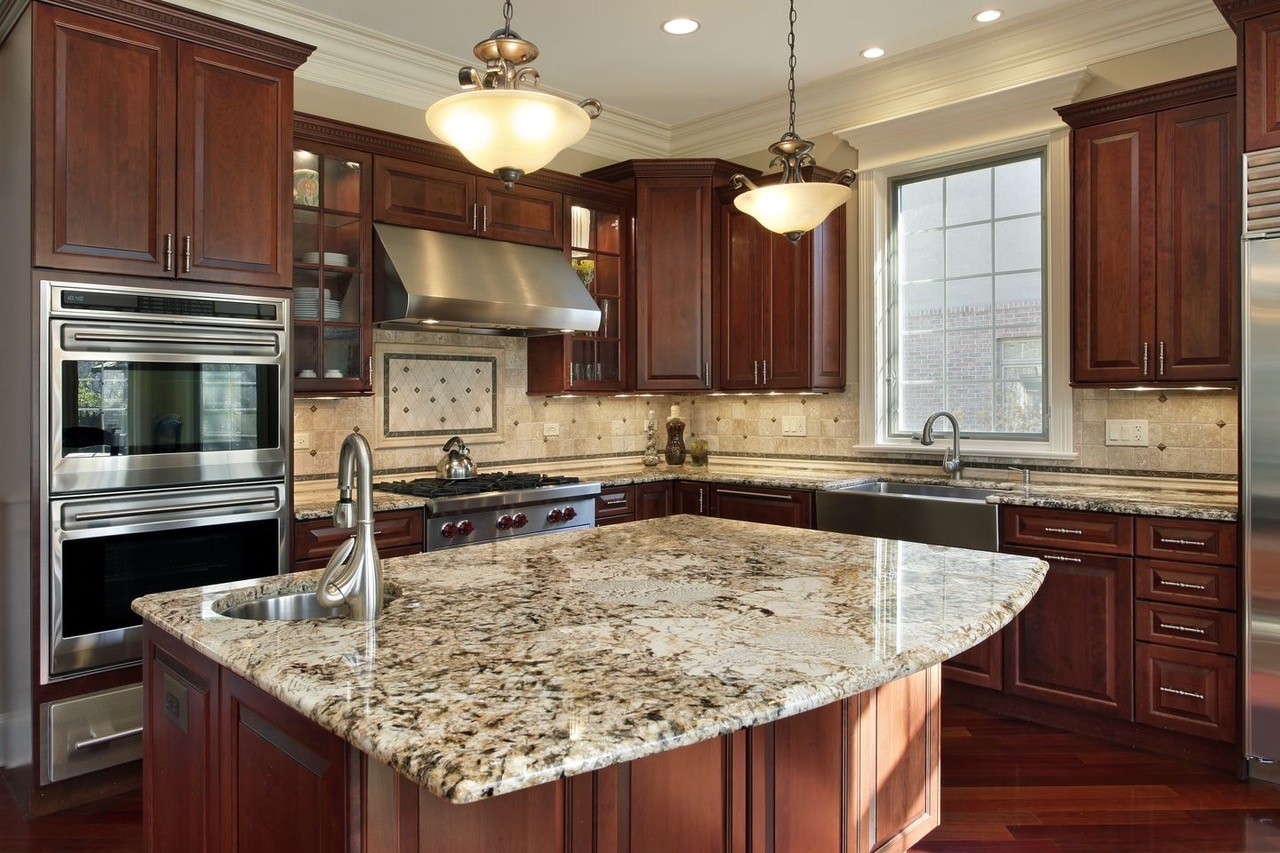
Pros: Granite is one of the most popular countertop options. Its natural beauty is incredibly unique. It is one of the most heat-resistant countertop materials available. While it is best to use hot pads, you can place a hot pot directly on granite without it cracking, bubbling, or becoming discolored. Not only is granite heat resistant, but it is also super tough! Granite can only be scratched by very few minerals, so you can cut directly on it (though it is not recommended because your knives will become dull). Granite is very low maintenance and easy to clean. It only requires to be resealed about every 10 years. Granite is stain-resistant as long as messes and spills are cleaned up within a few hours. When cleaning granite, avoid bleach, vinegar, and any other acidic cleaners. Warm water, mild dish soap, and a microfiber cloth will clean granite just fine. Granite is extremely long-lasting. Granite can last more than 100 years, so you will never have to worry about replacing your countertops. Having granite countertops can also increase the value of your home.
Cons: Granite is one of the most expensive countertop materials available. Prices vary depending on thickness, color, and texture. In general, it would be around $4,000 to have granite countertops in a kitchen.
Quartz
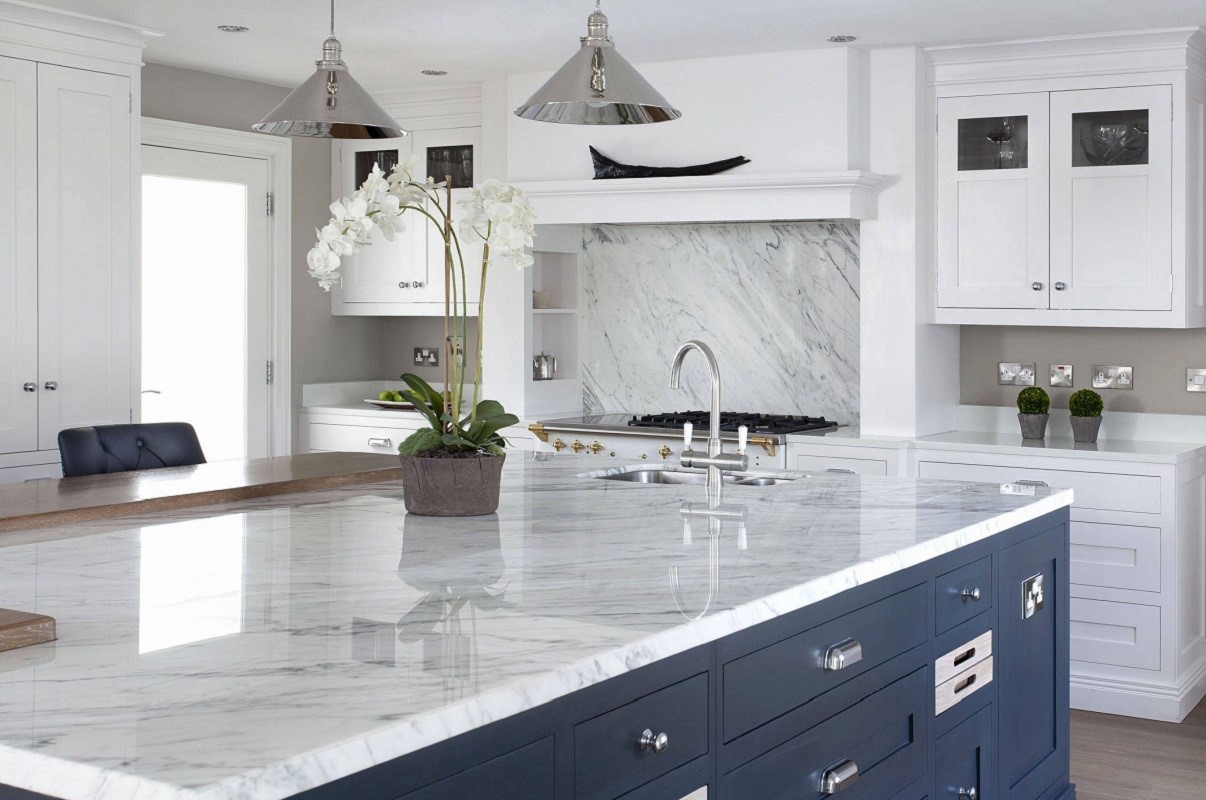
Pros: Quartz is a great alternative to granite. It’s man-made and therefore, a little cheaper than natural stone. It comes in more colors and designs than granite and can even mimic marble. Since quartz isn’t a natural stone, it doesn’t need sealing. It’s nonporous which makes it stain and scratch-resistant. It can withstand high heat without being damaged. As long as you don’t take a sledgehammer to your countertops, quartz will last a lifetime! Quartz countertops are also a very sustainable and green option.
Cons: While quartz is cheaper than natural stone, it is still pricey. On average, it would take about $2,000 to install quartz countertops. Quartz is also very heavy, making DIY installation nearly impossible.
Butcher Block
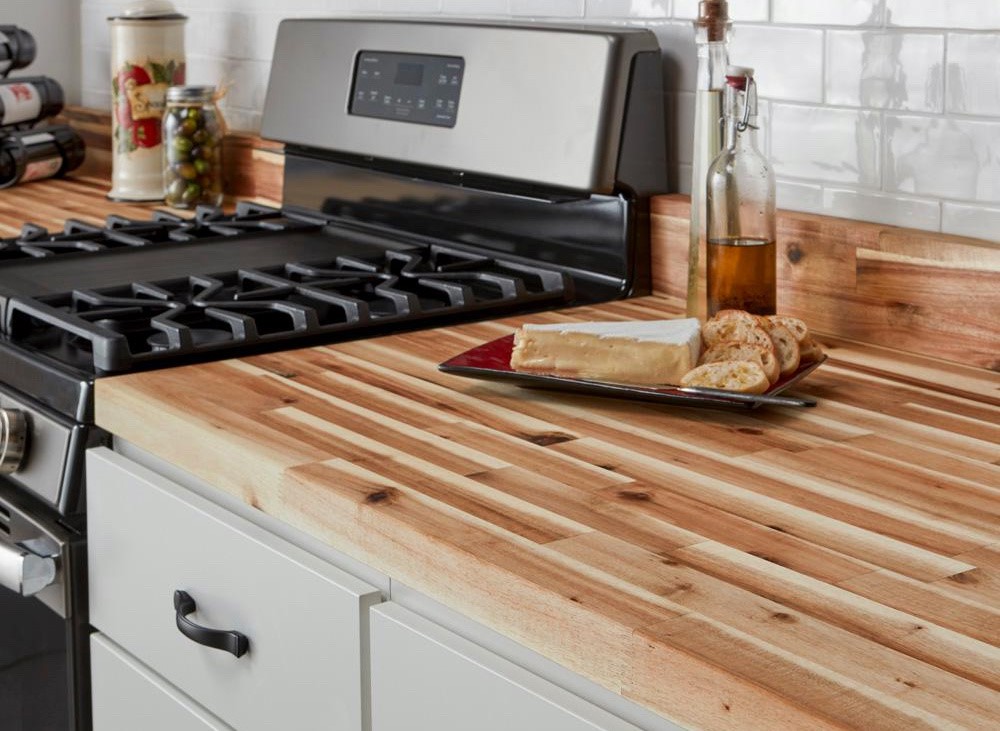
Pros: Recently, butcher block countertops have become very popular. They are extremely cheap, around $1,000 to install. They are also very easy to install, so you could do it yourself. Butcher block is pretty low-maintenance. If cared for correctly, butcher block countertops can last 20 years or more! Be sure to seal it as soon as it is installed so it can fight off those scary spills!
Cons: Butcher block is susceptible to stains, burns, and warping so you should seal them immediately after installation. Every 10 years or so, sand them down and reapply the seal. Even with a seal, wood countertops are not extremely heat and scratch-resistant, so don’t put hot pots or cut directly on them. These countertops are not great options for bathrooms, because the moisture in the air may cause the wood to warp.
Marble
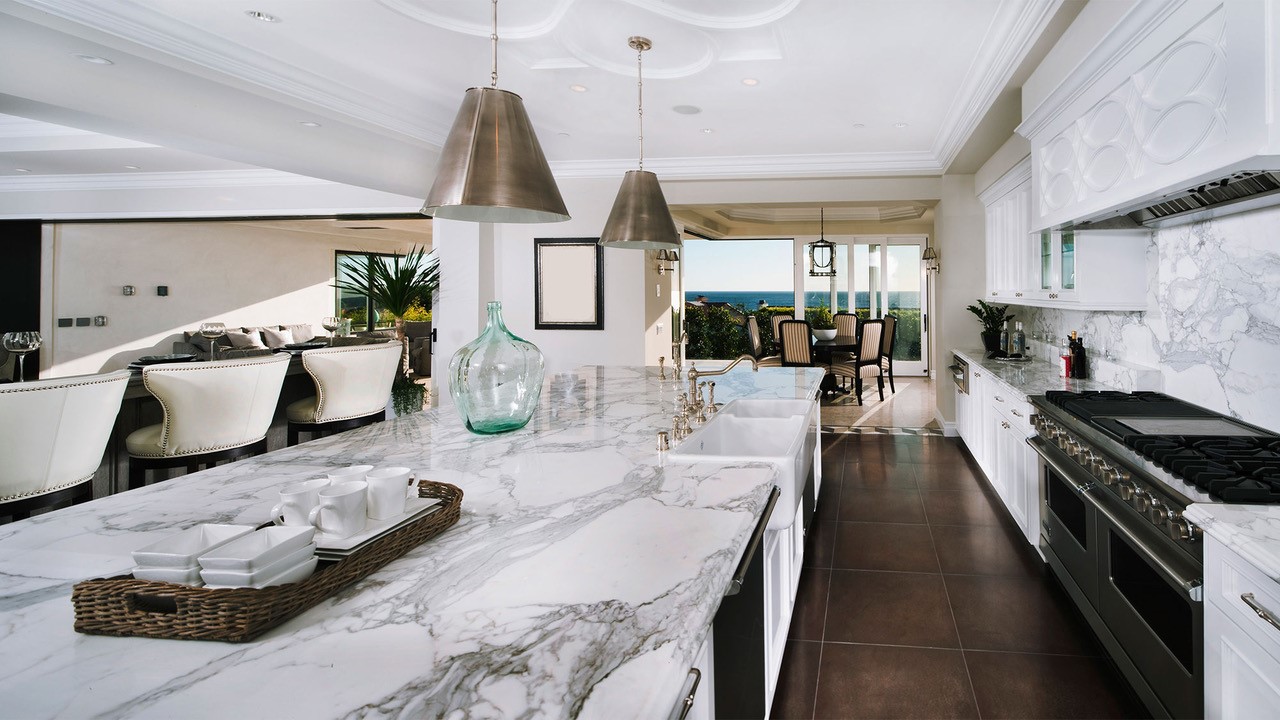
Pros: Marble is gorgeous and glamorous! Did you know that having marble countertops can increase the value of your home? It can last a long time if cared for properly. It is heat resistant, but it is best to use a hot pad under warm dishes and pans.
Cons: Marble stains quite easily. It is very porous and light-colored, making it easy for liquids to seep down and cause stains. Marble is incredibly heavy, making DIY installation nearly impossible. Marble is more high-maintenance than most countertops. Marble is a very soft stone, meaning it can be easily indented and scratched. On average, it would take about $3,000 to install quartz countertops. So less expensive than granite, but more expensive than quartz.
Laminate
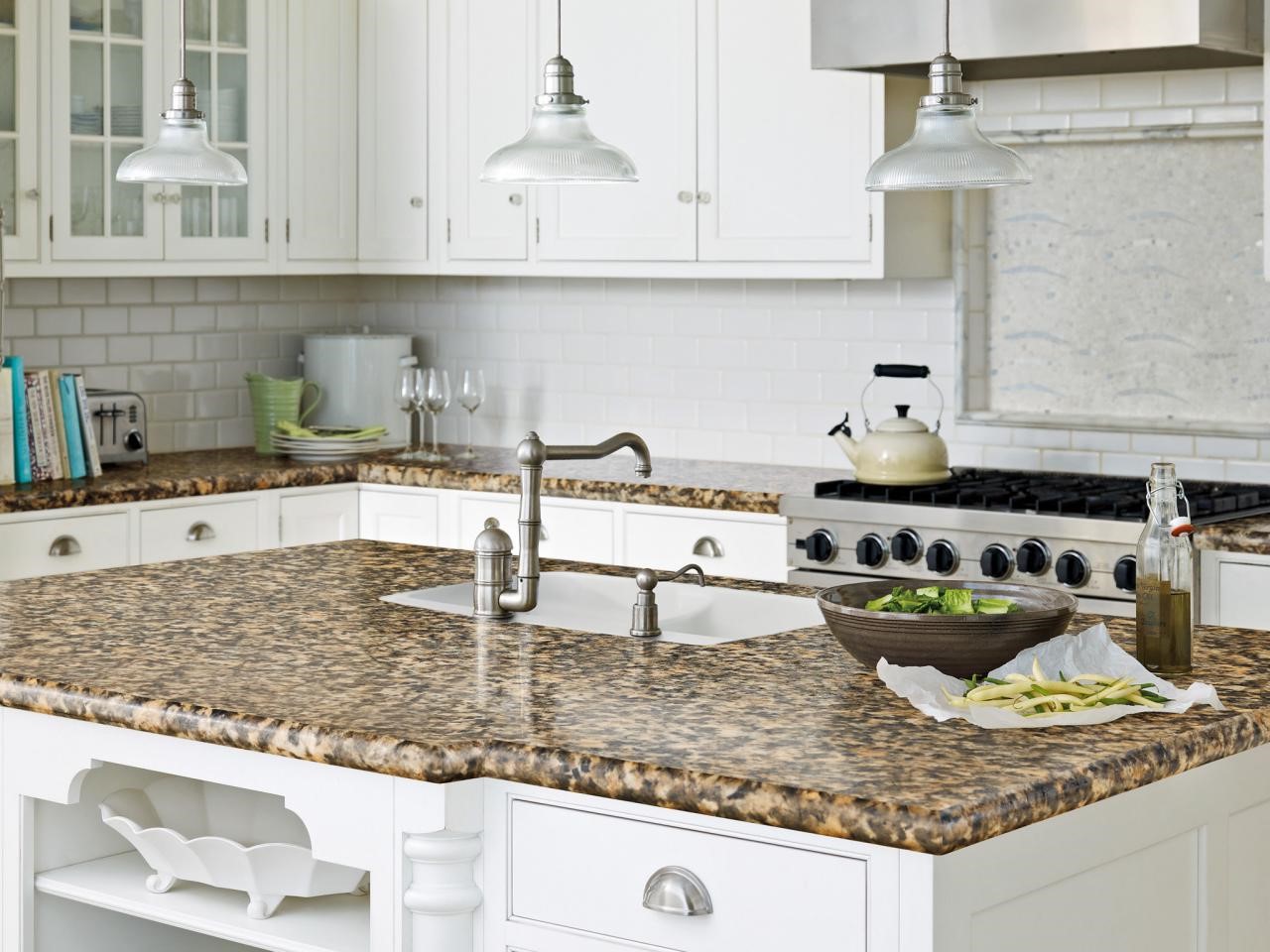
Pros: Laminate is one of the most inexpensive materials you can make a countertop out of. On average, laminate countertops would cost around $1,100. It is also one of the easiest materials to install yourself. Since laminate is made of plastic resins, it’s very easy to clean.
Cons: Laminate is easily scratched, chipped, and burned. You can’t put any warm objects on it without hot pads. It can be melted and warped if burned. If burned, there is no fix. If any liquid spills in between the seams, it is very difficult to repair. There is almost no way to repair serious damage and they will have to be replaced. Laminate doesn’t last very long, around 10-20 years if cared for properly.
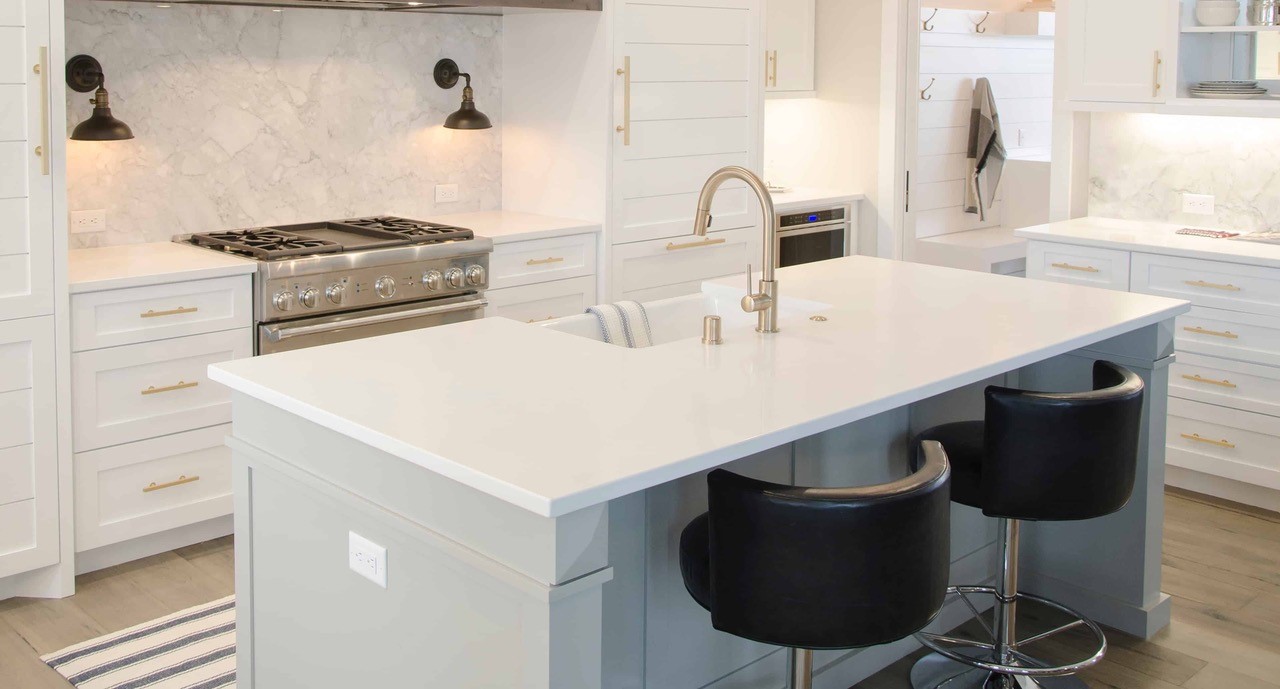
Conclusion
Granite
Pros:
- Durable
- Increases the value of a home
- Lasts a lifetime
Cons:
- Heavy
- Expensive
Quartz
Pros:
- Lasts a lifetime
- Durable and sustainable
- Low maintenance
Cons:
- Cheaper than granite, but still on the pricey side
- Heavy
Butcher Board
Pros:
- Cheap
- Low maintenance
- Easy DIY installation
- Lightweight
Cons:
- Not durable (not scratch and burn resistant)
- Not a good option for bathrooms or other moisture-filled rooms
Marble
Pros:
- Gorgeous
- Increase the value of a home
- Heat resistant
Cons:
- Super soft: susceptible to dings and dents
- Easily scratched
- Very porous: gets stained easily
- High maintenance
- Expensive
Laminate
Pros:
- Lightweight
- Easy DIY installation
- Cheap
Cons:
- Easy to burn and melt
- Easy to chip, dent, and ding
- Not durable
- Difficult to repair
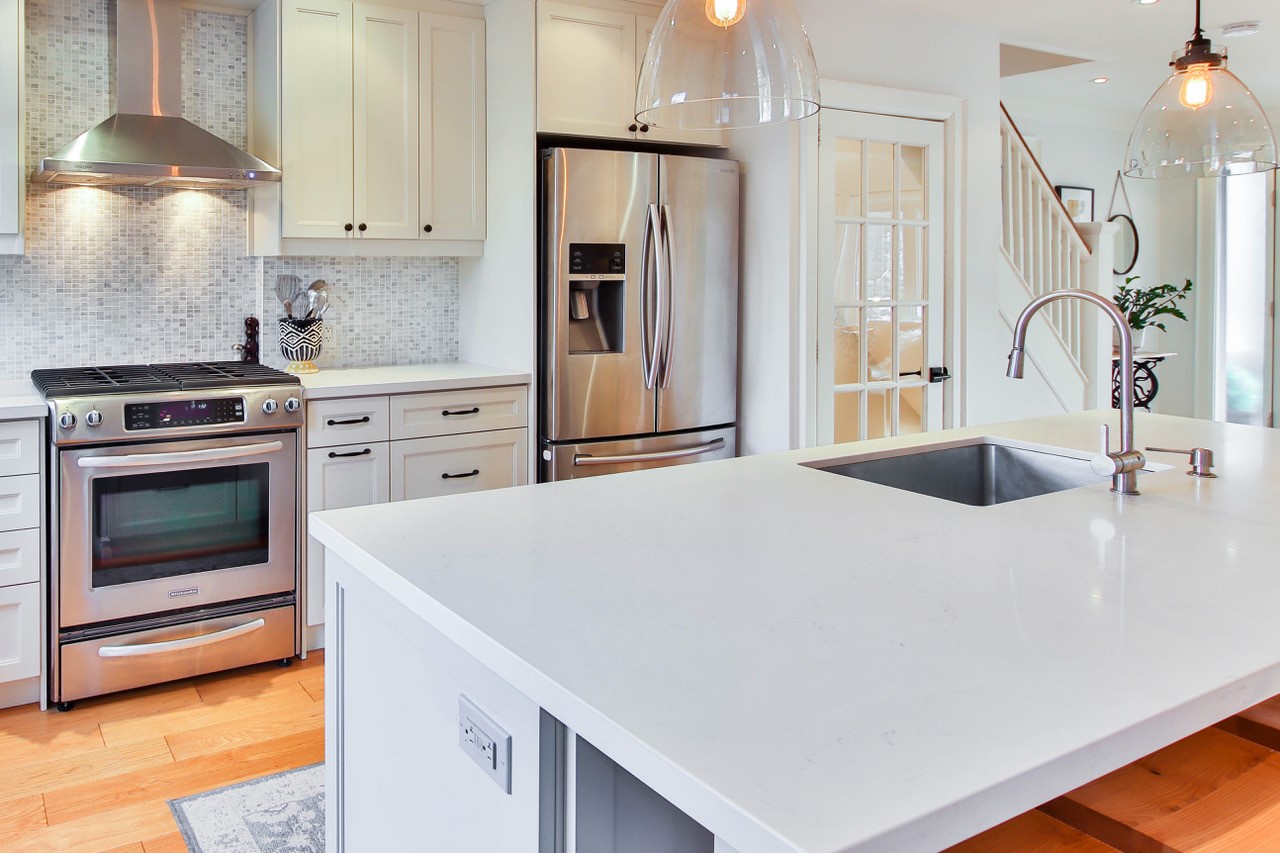
Now that you have all the facts, what’s your dream countertop material?
